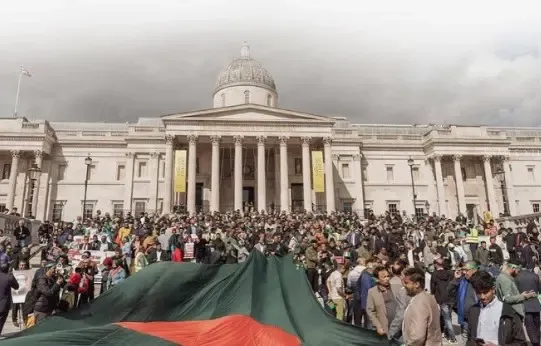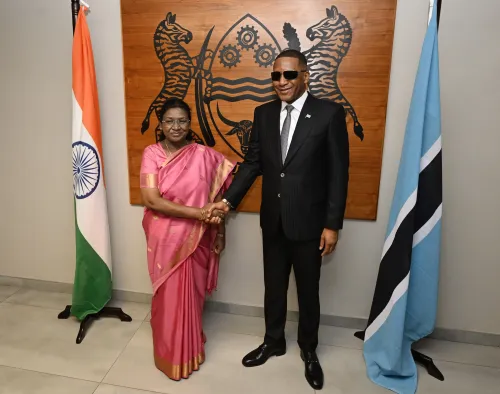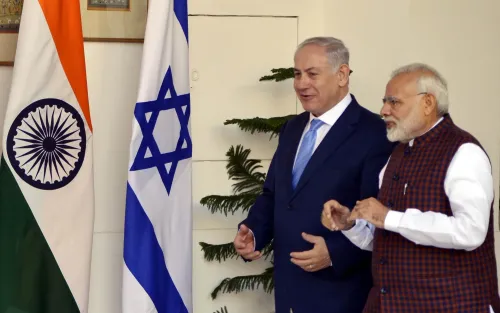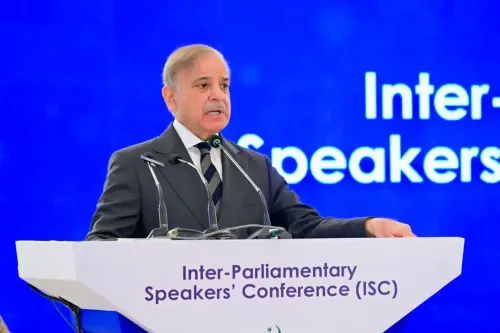Why Are Diaspora Protests in London Against Human Rights Abuses Under the Yunus Regime in Bangladesh?

Synopsis
Key Takeaways
- Over 2,000 Bangladeshi diaspora members protested in London.
- Concerns raised over human rights violations by the Yunus regime.
- Call for UK government intervention to uphold democracy.
- Protesters condemned attacks on religious minorities.
- International condemnation of Bangladesh's current state.
London, Sep 17 (NationPress) More than 2,000 individuals from the Bangladeshi diaspora residing in the United Kingdom gathered for a significant demonstration at Trafalgar Square in central London to voice their opposition against the repression, human rights violations, and undemocratic practices of the 'unelected' interim government under Muhammad Yunus in Bangladesh, according to the Awami League.
The protesters marched from Trafalgar Square to Downing Street on September 15, where they delivered a letter addressed to British Prime Minister Keir Starmer.
The Awami League highlighted that the letter conveyed the diaspora's serious concerns regarding the diminishing rule of law and the attacks on Bangladesh's free, pluralistic, and democratic political framework.
“The UK Government cannot remain passive while its close ally descends into chaos. Our two nations share a deep historical connection. Hundreds of thousands of concerned individuals in Great Britain, with families and friends in Bangladesh, desire to see the UK take an active role,” the letter stated, as quoted by the Awami League.
“We urge the Government to hold the interim administration accountable for the human rights violations it has overseen; to ensure free and fair elections; and to seek support from the international community as needed to uphold democracy in Bangladesh,” it further added.
The Awami League reported that demonstrators in central London also protested against the attacks on religious minorities that have occurred since the Yunus administration took power. They disclosed that in the initial three months of the Yunus regime, over 2,000 assaults against Hindus and other religious groups were documented, and these targeted acts of violence persist.
The party pointed out that the current situation in Bangladesh has drawn widespread international criticism from human rights organizations, which have condemned media repression, violence against religious minorities, and the persecution of an entire political party along with its supporters.
It was underscored that the Awami League has been banned from participating in future elections by the 'unelected' interim government, resulting in disenfranchisement for tens of millions of Bangladeshis.
The party also emphasized that the protesters condemned the numerous arbitrary and politically motivated charges filed against supporters of the Awami League.
Additionally, the Awami League alleged that members of the media and judiciary have faced targeting due to their political affiliations.
“Over 160 journalists considered sympathetic to the previous government have had their press credentials revoked, and several senior journalists have been arrested and detained, some on dubious murder charges, with restricted access to legal representation,” the party noted.









